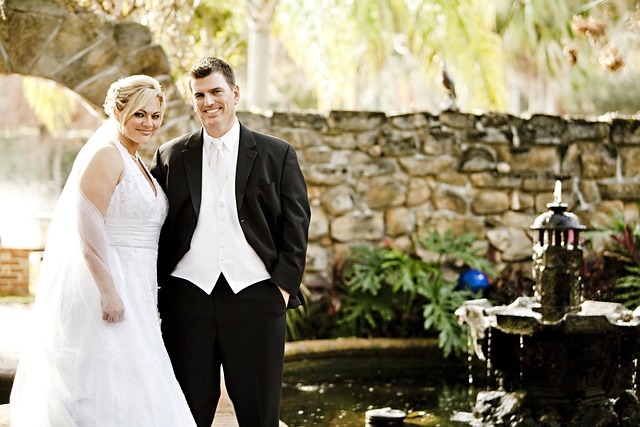For male couples considering IVF, understanding egg donation is key. They can choose between known and anonymous donors, each offering unique benefits. Rigorous screening of anonymous donors ensures health and compatibility. Important legal and emotional considerations include researching clinic reputation and comprehensive counseling for a supportive family-building experience.
“Exploring the complexities of IVF treatments for male couples, this article delves into the world of egg donation. We dissect the pivotal choice between known and anonymous donors, highlighting their roles in achieving parental dreams. From legal considerations to emotional journeys, we navigate the landscape of donor egg usage, offering insights for same-sex male pairs.
Understanding the unique benefits and potential challenges, this comprehensive guide illuminates the path towards building families through IVF with donor eggs.”
Understanding Egg Donation: A Comprehensive Overview
Understanding egg donation is essential for anyone considering IVF with donor eggs for male couples. It’s a complex process that involves the donation of oocytes (eggs) from a female donor to another woman or couple who cannot conceive using their own eggs. This method offers hope for individuals and couples facing fertility challenges, especially in cases of ovulatory disorders, advanced maternal age, or genetic conditions. By utilizing donor eggs, same-sex male couples can explore parenthood, ensuring the best possible genetic match while also considering ethical and emotional aspects.
The journey begins with thorough screening and evaluation of potential donors to ensure their health and compatibility with the recipient. This includes medical history checks, genetic testing, and psychological assessments to match the donor’s characteristics with the needs and preferences of the intended parents. The donation process itself is carefully monitored and regulated to maintain safety and anonymity, preserving privacy for all parties involved. Understanding these intricacies is vital for prospective parents navigating the options available in IVF treatments with donor eggs.
The Role of Known vs. Anonymous Donors in IVF Treatments
In the realm of IVF treatments for male couples, the choice between known and anonymous egg donors is a significant decision that can impact both the emotional journey and the outcome. Known donors bring a unique dynamic by offering transparency and often establishing a pre-existing connection with the prospective parents. This path allows for personalized selection, enabling couples to choose a donor based on shared traits or characteristics, creating a sense of familiarity. Moreover, known donors may provide ongoing support throughout the IVF process, fostering a more direct relationship between the future family and the genetic contributor.
On the other hand, anonymous donors maintain privacy and anonymity, ensuring the protection of sensitive information. This option appeals to couples seeking discretion while still benefiting from donor eggs. Anonymous donation programs often have rigorous screening processes, providing assurance regarding health and compatibility. While there may be less personal interaction, this approach ensures a professional and structured environment for IVF with donor eggs for male couples, focusing on achieving successful outcomes without the complexities of direct communication with the donor.
Benefits and Considerations for Male Couples Using Donor Eggs
For male couples considering IVF with donor eggs, this path offers a chance to build their family. Using donor eggs bypasses biological barriers, allowing both partners to be involved in the pregnancy process as equal parents. This option removes the physical limitations that prevent same-sex male couples from conceiving naturally, providing an accessible route to parenthood.
When exploring IVF with donor eggs for male couples, there are several considerations. The first is ensuring a comprehensive understanding of the legal and ethical aspects related to egg donation in their jurisdiction. Additionally, they should weigh the emotional impact of adopting this route, embracing open communication about the decision within their relationship. Finally, choosing a reputable clinic specializing in LGBTQ+ family-building can ensure a supportive environment and the best possible outcomes for their IVF journey.
Legal and Emotional Aspects of Egg Donation for Same-Sex Male Pairs
When exploring IVF with donor eggs for male couples, understanding the legal and emotional aspects is crucial. In many jurisdictions, egg donation is strictly regulated to protect both the donor and the intended parents. For same-sex male pairs, the legal framework can vary widely depending on the country or state they reside in. Some places offer specific legal protections and recognition for such arrangements, while others may have more limited options.
Emotionally, navigating this process requires open communication between all parties involved. Male couples considering IVF with donor eggs should discuss their expectations, concerns, and the potential impact on their relationship. It’s also important to select a reputable clinic that provides comprehensive counseling services, ensuring everyone understands the procedures, risks, and responsibilities. This transparency helps foster a supportive environment, allowing the couple to focus on building their family while managing the complexities of egg donation legally and emotionally.
In navigating IVF treatments with donor eggs for male couples, understanding both known and anonymous donation options is crucial. Each approach presents unique benefits and considerations, from legal frameworks to emotional dynamics. For same-sex male pairs, exploring these alternatives allows them to make informed decisions, ensuring the best possible outcome in their quest for parenthood. By weighing the pros and cons of known versus anonymous egg donors, couples can choose a path that aligns with their individual needs and preferences.
